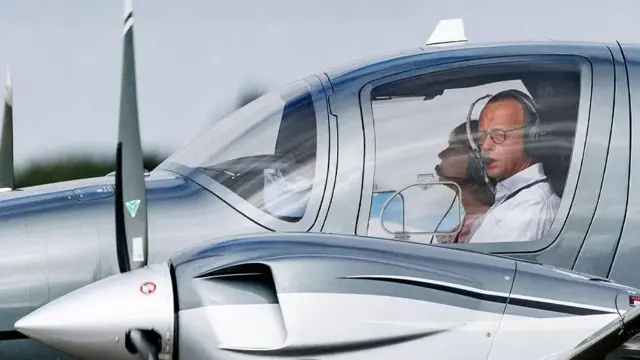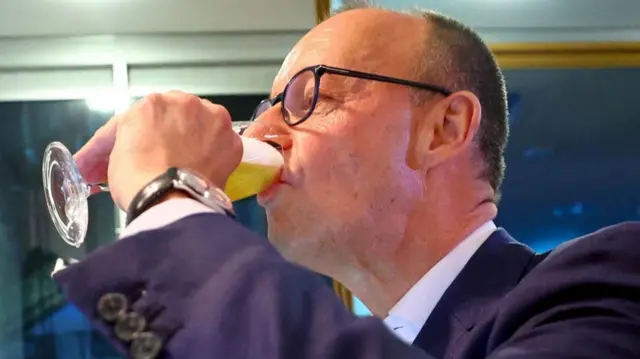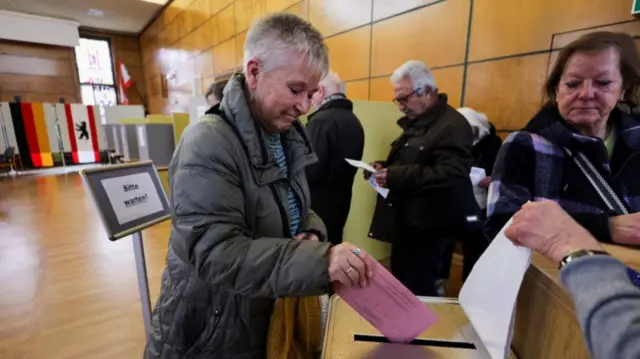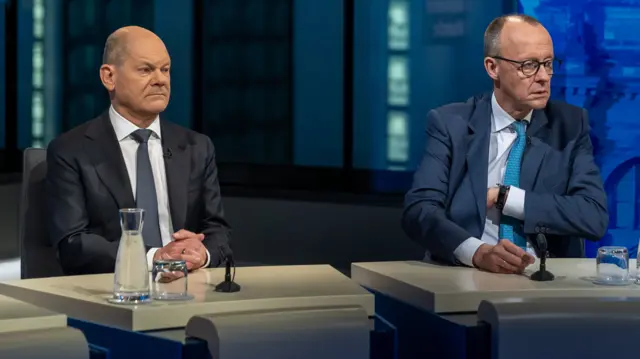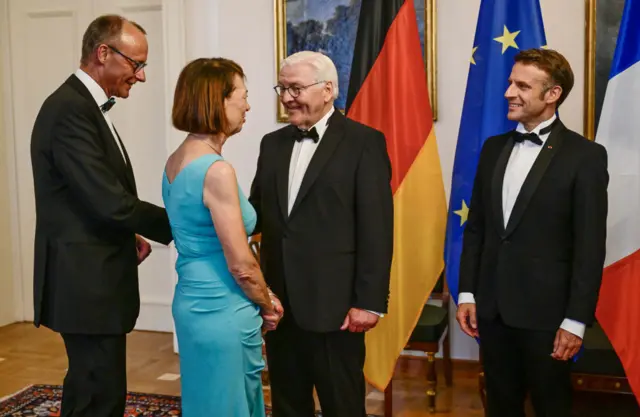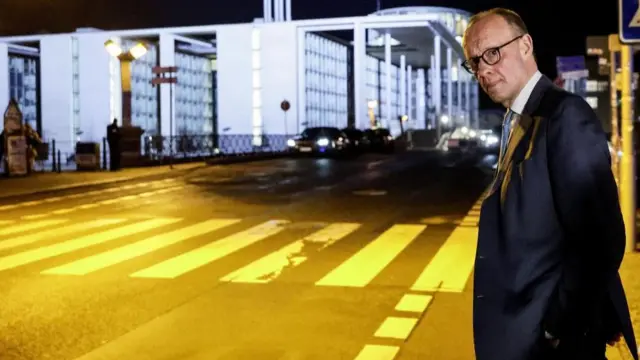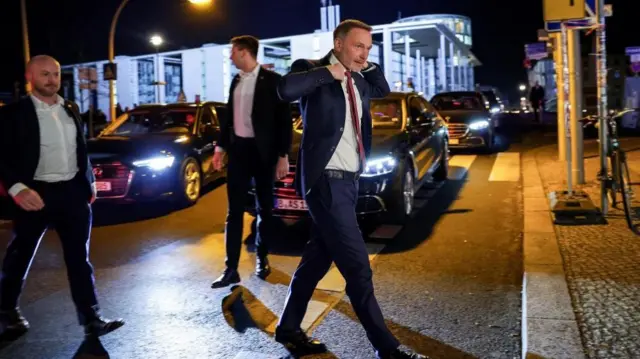Social Democrats suffer worst ever resultpublished at 07:32 GMT 24 February
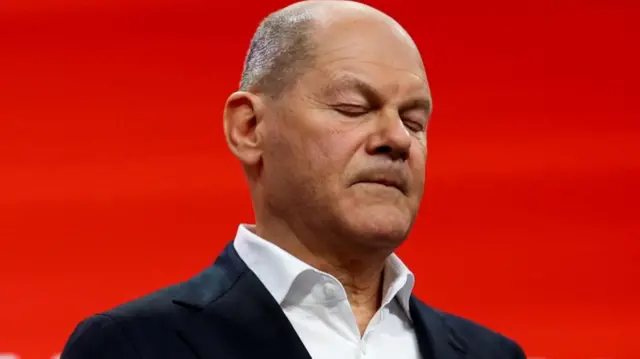 Image source, Reuters
Image source, ReutersOutgoing Chancellor Olaf Scholz's Social Democrats fell to third place in the election results, polling just 16.4%.
Scholz said the election results were a bitter defeat for the party, and his party would enter coalition talks with the victorious CDU/CSU without him.
The failure of the incumbent party to secure another term in power reflects an international trend, and follows changes or challenges to governments across the world.
For example, in the US President Trump lost a re-election bid in 2020 but returned to power in January, and France has seen numerous knocks to President Macron's authority, with his Prime Minister Michel Barnier forced out of office in December. And of course in the UK last year Labour ended 14 years of Conservative rule.
